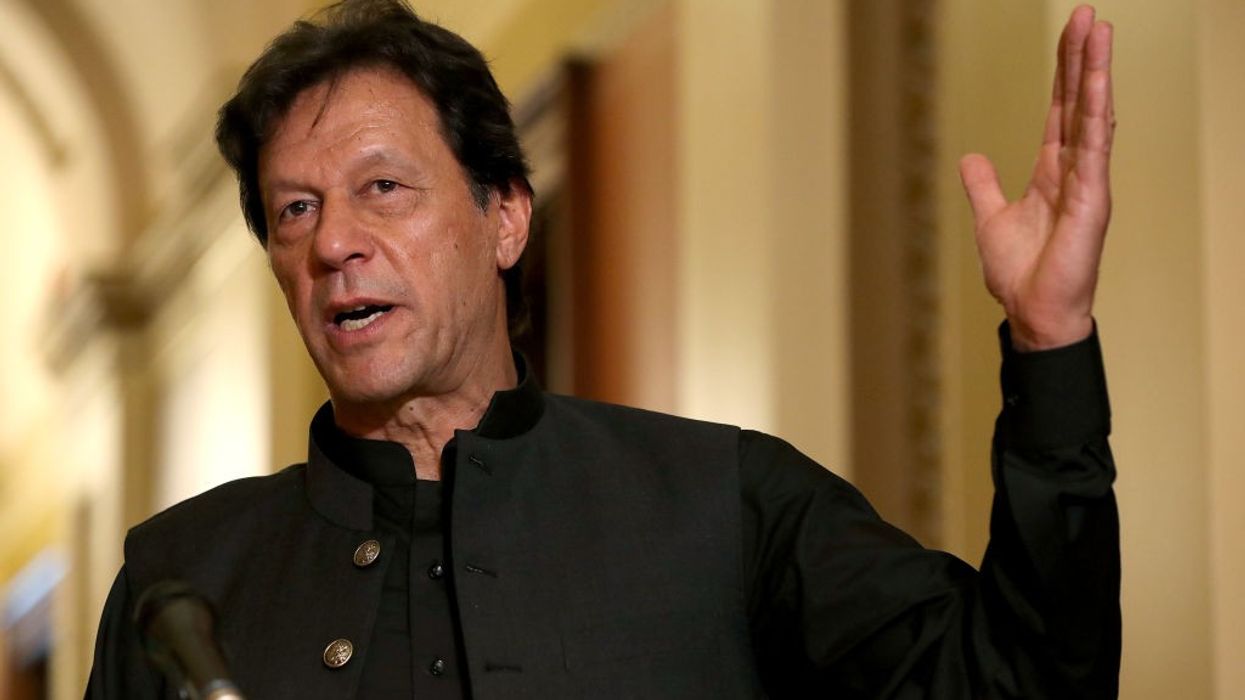PAKISTAN prime minister Imran Khan said he will resume talks with India if New Delhi provides a roadmap towards restoring the previous status of Kashmir.
India and Pakistan control parts of Kashmir but claim it in full.
In 2019, India withdrew Jammu and Kashmir's autonomy, sparking outrage in Pakistan, the downgrading of diplomatic ties and a suspension of bilateral trade.
"If there is a roadmap, then, yes, we will talk," Khan said on Friday (4).
Previously, Khan and his government said India would have to first reverse its 2019 steps for any "normalisation process" to begin.
"Even if they give us a roadmap, that these are the steps that we will take to basically undo what they did... then that is acceptable," Khan said, adding he wanted a "civilised" and "open" relationship with India.
"It is common sense that if you want to reduce poverty in the subcontinent, the best way is to trade with each other," he said, referring to the example of the European Union.
Pakistan in March deferred a decision by its top economic decision-making body to restart trade with India until New Delhi reviewed its moves in Kashmir.
Khan said India had crossed a "red line" by revoking the autonomy of its part of Kashmir. "They have to come back for us to resume dialogue," he said, adding, "at the moment there is no response from India".
Earlier this year, Indian officials said the two governments had opened a backchannel of diplomacy aimed at a modest roadmap to normalising ties over the next several months.
Khan said also Pakistan is pushing for a political settlement in Afghanistan before foreign troops leave later this year, to reduce the risk of civil war in its western neighbour.
The United States has said it will withdraw all its troops from Afghanistan on September 11 after a two-decade presence. More than 20 allied countries also plan to follow suit.
"There is a lot of fear right now in Pakistan and I assure you that we are trying our level best that there is some sort of political settlement before the Americans leave," Khan said.
Violence in Afghanistan has risen sharply since the troop withdrawal announcement, with the insurgent Taliban resisting pressure from Washington and its allies to agree to a political understanding leading to a peace deal.
"Since the moment the Americans gave a date, of when they were going to leave Afghanistan ... the Taliban feel they have won the war," Khan said, adding it was not going to be easy to get concessions from the Taliban after the US decision.
Khan said Pakistan would suffer the most, after Afghanistan itself, if there was a civil war and a refugee crisis.
"And then there would be pressure on us to jump in and become a part of it," Khan said.
He said his government had changed Pakistan's decades-long policy of pushing for "strategic depth" in Afghanistan to ensure that there was a friendly government there.
Pakistan has long been accused of harbouring leaders and fighters of the Taliban, whom Islamabad helped to power in 1996, even as the insurgent group fought US-led foreign troops.
Islamabad has, however, denied providing shelter to Taliban members. It said it has made consistent efforts to promote lasting peace and stability in Afghanistan.




